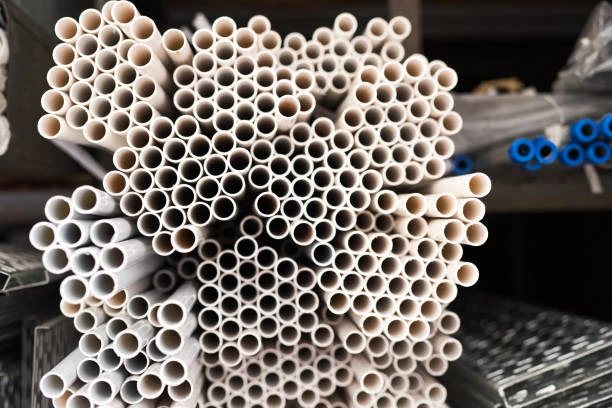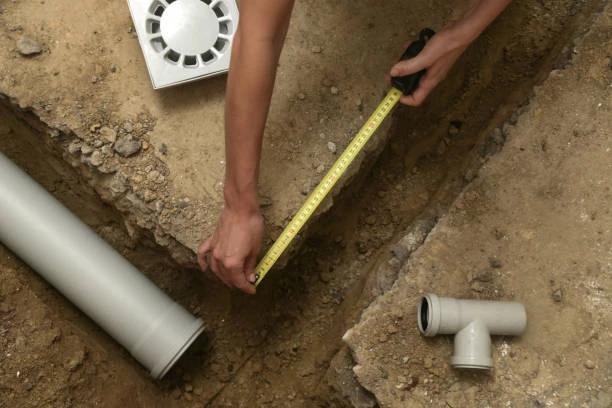Introduction
Charlotte Pipe’s new plants bring growth opportunities for North Carolina’s short line and Kansas’ regional railways. These plants increase rail traffic, creating a positive economic impact. The strategic locations of these plants enhance supply chain efficiency and regional connectivity.
Charlotte Pipe’s New Plants Pose Growth Opportunities for Railways
Charlotte Pipe’s new plants in North Carolina and Kansas significantly increase freight carloads for regional railways. These facilities depend on rail transport to move raw materials and finished products. The increased volume boosts revenues for short lines and regional railway operators.
How Charlotte Pipe’s New Plants Pose Logistics Benefits
Charlotte Pipe’s new plants improve logistics by leveraging rail networks for transportation. The strategic placement of these plants reduces shipping times. Efficient rail transport ensures timely delivery of piping products to customers across the country.
Charlotte Pipe’s New Plants Pose Economic Gains for North Carolina
North Carolina’s short line railways benefit from increased freight traffic due to Charlotte Pipe’s new plants. The additional carloads create jobs and support local businesses. This growth strengthens the state’s economy and enhances its industrial infrastructure.
Charlotte Pipe’s New Plants Pose Challenges and Solutions for Kansas Railways
Kansas’ regional railways face the challenge of managing increased carloads from Charlotte Pipe’s plants. However, investments in infrastructure and rail capacity address these challenges. These upgrades ensure efficient transport and maintain service quality for other industries.
Charlotte Pipe’s New Plants Pose Supply Chain Enhancements
The new plants streamline Charlotte Pipe’s supply chain by centralizing production and distribution. Rail transport allows for cost-effective, large-volume shipping. This efficiency improves supply chain reliability and strengthens Charlotte Pipe’s market position.
Charlotte Pipe’s New Plants Pose Environmental Benefits
Charlotte Pipe prioritizes sustainability, and rail transport supports its environmental goals. Railways produce lower emissions than trucks, reducing the carbon footprint of transporting materials. This aligns with Charlotte Pipe’s commitment to eco-friendly operations.
Charlotte Pipe’s New Plants Pose Market Expansion Opportunities
The increased production capacity from Charlotte Pipe’s new plants enables market expansion. The efficient rail connectivity in North Carolina and Kansas facilitates product distribution to new regions. This growth strengthens Charlotte Pipe’s competitiveness in the piping industry.

Charlotte Pipe’s New Plants Pose Job Creation Prospects
The new Charlotte Pipe plants bring significant economic benefits to both North Carolina and Kansas, with job creation being a key outcome. These facilities not only generate direct employment opportunities within the plants themselves but also stimulate growth in related industries. The increased demand for rail services to transport raw materials and finished products has led to the creation of jobs in logistics, transportation, and rail operations. Rail operators, short line companies, and freight handlers are seeing a surge in activity, requiring more workforce to manage the growing volume of carloads.
Additionally, the increased industrial activity sparked by the new plants positively impacts local economies. Suppliers, contractors, and service providers in both states benefit from the heightened demand for goods and services. This economic ripple effect supports small businesses and encourages further investments in the region.
In North Carolina, the short line railways that serve Charlotte Pipe’s plant experience heightened freight traffic, which leads to increased revenues and the hiring of additional personnel to ensure smooth operations. Similarly, in Kansas, regional railways handling the plant’s logistics find opportunities to expand their capabilities, creating employment opportunities in infrastructure upgrades and maintenance.
Beyond logistics and transportation, these plants contribute to community growth by boosting local tax revenues, which can fund public services, infrastructure improvements, and educational programs. As a result, the regions surrounding the new plants see enhanced economic stability and greater development prospects. The new Charlotte Pipe plants are not only strengthening the company’s supply chain but are also playing a vital role in driving job creation and fostering economic growth in both North Carolina and Kansas.
Long-Term Rail Partnerships
Charlotte Pipe’s reliance on rail transport fosters strong partnerships with regional rail operators. These partnerships ensure long-term collaboration and mutual growth. The plants’ consistent freight volume supports the sustainability of short line and regional railways.
Technological Advancements
The increased rail traffic from Charlotte Pipe’s plant drives innovation in rail technology. Rail operators adopt advanced systems to handle the growing freight volume efficiently. These advancements enhance safety, reliability, and overall rail performance.
Conclusion
Charlotte Pipe’s new plant in North Carolina and Kansas pose significant opportunities for regional railways and local economies. Increased carloads boost revenues, enhance supply chain efficiency, and create jobs. By leveraging rail transport, Charlotte Pipe achieves sustainability and market growth, benefiting the communities it serves.
FAQs
- What are the benefits of Charlotte Pipe’s new plant for railways?
The new plants increase carloads, boost revenues, and enhance connectivity for regional and short line railways. - How do Charlotte Pipe’s plant support local economies?
The plants create jobs, support businesses, and drive industrial growth in North Carolina and Kansas. - Why does Charlotte Pipe use rail transport?
Rail transport ensures cost-effective, large-volume shipping with reduced environmental impact compared to trucking. - What challenges do Kansas railways face from increased carloads?
Kansas railways face capacity challenges but address them through infrastructure investments and upgrades. - How do Charlotte Pipe’s plant align with sustainability goals?
The plant use rail transport, which lowers carbon emissions and supports Charlotte Pipe’s eco-friendly initiatives.

















